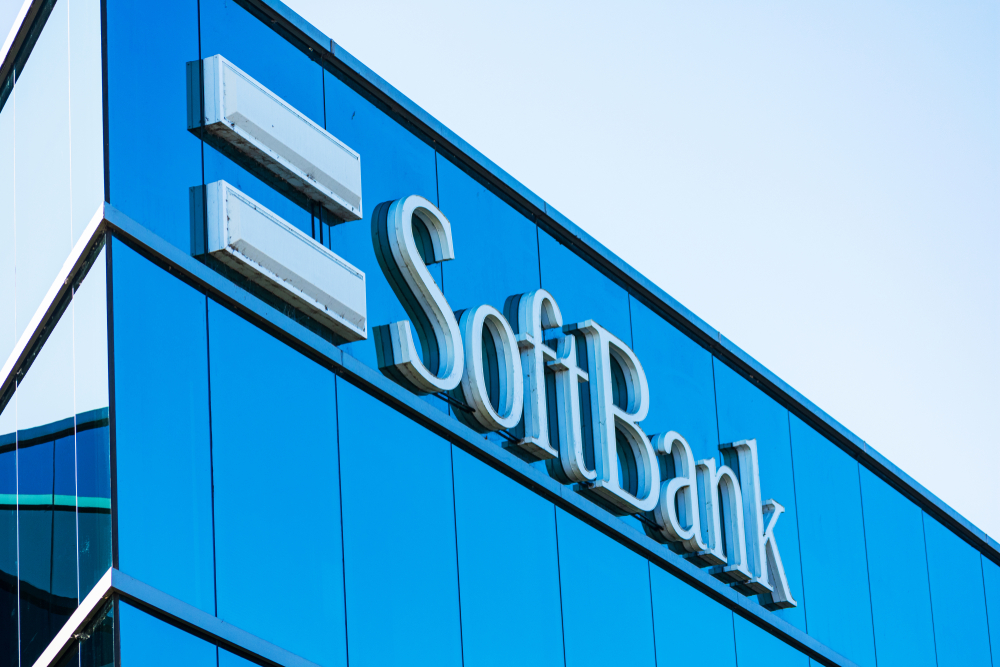In today’s article, Nicholas Vardy shares how a single winner could make all the difference to your portfolio… And Alexander Green just made discovering the next one a bit easier.
You see, Alex is actively trying to identify stocks that have unstoppable momentum driving them higher.
These companies are leaders in their sectors and can all be found in his VIP Trading Research Service The Momentum Alert. The track record for Alex’s service speaks for itself.
He’s delivered gains of 325% in 75 days… 549% in 41 days… and 854% in just 69 days…
And on Thursday, June 9, at 8 p.m. ET, Alex will discuss the latest addition to his list of momentum stocks. And the opportunity here is HUGE.
If you’re not already a subscriber to The Momentum Alert or you’d like to discover the single greatest path to bigger, faster gains, make sure to tune in.
Go here to reserve your FREE spot.
– Madeline St.Clair, Assistant Managing Editor
With a net worth of $22 billion, Masayoshi Son may be the wealthiest investor you never heard of.
Son’s compelling life story offers important insights on what it takes to become one of the most successful investors in the world.
But a closer look at Son’s investment strategy also reveals what might be the single most underappreciated aspect of investing…
The High-Risk Life of Masayoshi Son
Masayoshi Son was born in Tosu, Japan, in 1957.
As an ethnic Korean, Son always knew that he would be an outsider in homogenous Japan.
So at the age of 17 in 1974, Son picked up and moved to California.
He went on to study computer science and economics at the University of California, Berkeley.
While at Berkeley, Son launched several businesses. One business hit big when he sold a voice-operated translator to electronics firm Sharp for $1.7 million. Son made another $1.5 million importing video games.
He later returned to Japan and set up a software distribution company, naming it SoftBank (OTC: SFTBY).
And what happened next completely changed his life…
By the mid-1980s, SoftBank controlled around half of Japan’s market.
About that time, Son started reinvesting his profits into a portfolio of early-stage tech firms.
That’s how Son crossed paths with Jack Ma, a Chinese English teacher.
In the summer of 1999 – at the height of the dot-com boom – Ma set up Alibaba (NYSE: BABA), a business-to-business e-commerce platform.
Ma started Alibaba from his apartment in Hangzhou, China, on a shoestring, with $2,000 in seed money from his in-laws.
Enter Son and SoftBank, which eventually led a $20 million syndicate to invest in the fledgling company.
The backdrop to Alibaba’s launch was auspicious.
The Chinese economy was booming. China had just joined the World Trade Organization in 2001. China was well on its way to becoming the manufacturing hub of the global economy.
And Alibaba became an overnight success.
Some investors dumped Alibaba after the dot-com bubble burst. But SoftBank stuck with its investment, despite losing a remarkable $70 billion in the crash.
When Alibaba finally went public in 2014, SoftBank’s stake was worth roughly $8 billion.
By 2018, its 25% stake in Alibaba was worth an estimated $180 billion.
Son’s $20 million investment had grown to almost 9,000X his initial investment capital.
That works out to a return of over 65.8% a year between 2000 and 2018.
That made Son’s investment in Alibaba one of the most successful investments in venture capital history.
The lessons for investors?
Son made hundreds of investments. But the vast majority of those deals failed…
Notably, Son also invested $10 billion in office-sharing company WeWork (NYSE: WE) – $2 billion of it at a peak valuation of a $47 billion.
Today WeWork is barely worth one-tenth that amount.
(The fascinating Apple TV+ series on the WeWork debacle – WeCrashed – features Son’s character in several episodes.)
Son also made big mistakes of omission, passing up early investments in Amazon (Nasdaq: AMZN) and Tesla(Nasdaq: TSLA).
In short, among the hundreds of investments he made, Son’s single investment in Alibaba made his career.
Everything else was little more than a distraction.
How Silicon Valley’s Venture Capitalists Think
Son’s approach is typical of a venture capitalist.
He built a portfolio of investments. And then he sat back and waited.
He knew most of his investments would fail. But he also knew a few would rocket in value.
And those few winners were the only investments that really mattered.
Silicon Valley’s venture capital firms also compete to invest in all the best deals.
Why?
Much like Son, Silicon Valley’s venture capitalists don’t know which of their investments will turn out to be the next Uber (NYSE: UBER) or Airbnb (Nasdaq: ABNB).
Missing out on a successful investment can be far more costly than investing in a bad one.
Lessons for Stock Market Investing
What does all this have to do with stock market investing?
More than you think.
Let’s look at the closest thing armchair investors have to venture capital: the Russell 3000.
This is a broad index that tracks the 3,000 largest publicly traded companies in America.
A 2016 J.P. Morgan study showed that the Russell 3000 soared 49-fold from 1980 to 2014.
Over that time period, JPMorgan found that 64% of stocks lagged the overall index between 1980 and 2014.
About one third – 29% – were solid performers.
But 7% of the companies knocked it out of the park.
And the returns on those 7% were enough to push the entire index up almost fiftyfold over 34 years.
All this reminds me of Hollywood screenwriter William Goldman’s famous observation: “Nobody knows anything.”
In Hollywood, no one knows ahead of time which movie is going to be a hit.
The same applies to books, TikTok videos and, yes, publicly traded stocks in the Russell 3000.
This observation takes us back full circle to the most time-honored advice about investing.
The key to making money in the stock market is to invest in a diversified portfolio.
That’s because no one knows ahead of time which stocks will be the big winners.
Much like Alibaba did for Son, a single big winner could make all the difference.
Credit: Source link














